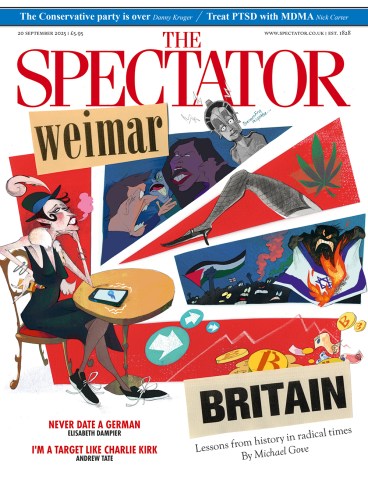
One of Dominic Cummings’s many insights in the run-up to the Brexit referendum was that ‘most people were both more right-wing and more left-wing than politicians ever realise’. Political obsessives naturally frame all questions – indeed shape their own identities – along a left-right spectrum, and so assume everyone else sees the world in similarly clear-cut terms. They really don’t.
Indeed one of the most dangerous habits of journalists is their readiness to brand as ‘far-right’ opinions which are held by fairly large swaths of the population, many of whom might be otherwise left-wing in other contexts. What is risky about this is that it may achieve nothing other than promoting greater self-identification around the very causes it is attempting to disparage. People denigrated or patronised rarely change their minds in response – instead they become more deeply committed to the abused group, a process known in anthropology as ‘owning the insult’. The barbs of abuse are often recast as badges of honour.
The word ‘Tory’ originated as an insult before being co-opted as an identity. In the US the self-described ‘deplorables’ became a powerful electoral bloc. The most absurd use of the counterproductive insult has to be the casual way in which people throw around accusations of ‘fascist’. Most of the people I remember from my childhood who risked their lives flying Lancasters over occupied Europe held opinions which would see them labelled as Nazis today. In the US, they sometimes label as ‘communist’ views which would barely cause a raised eyebrow among conservatives in Britain.
But to some extent all the talk of polarisation, as Cummings surmised, may be missing the point. It may be nothing of the kind. Looked at from the point of view of a business, what you have are not popularist, far-right or radical groups: you simply have a lot of unhappy customers. The feelings of rage and powerlessness involved are no different to those experienced by people who are unsuccessfully trying to get their broadband installed or dealing with a useless call centre. It’s a symptom of any situation where a customer cannot speak to anyone who will listen to them, where the people you do speak to are incapable of understanding your specific situation, or where they cannot take action because they are operating within rules they are powerless to change. All these enraged emotions arise from evolutionary instincts which pre-date conventional politics by hundreds of thousands of years. The politics are a symptom, not the root cause. The frustrated voters are ‘taking their business elsewhere’.
The feelings of rage and powerlessness involved are no different to those experienced by people dealing with a useless call centre
I always argue that most people in business should spend some time working in the hospitality industry. It’s like getting a free MBA. For one thing, you get to understand in miniature how the various aspects of a business interconnect. The hospitality industry is a fast-feedback business, where you learn from experiments very quickly. Above all, in any service industry, you learn that what makes customers happy or angry may have little to do with the things you think are ‘important’. The best restaurateurs, like the best hairdressers, are very good amateur psychologists.
A restaurant or hotel run by lawyers and economists would not survive very long. It would be slow, mean-spirited, rule-bound and charmless. It would impose rules without explanation and value operational efficiency and procedural adherence over quality of outcome. It would be deaf to special requests. And it would provide you with the bare minimum of service at a glacially slow pace, grudgingly and without charm or apology. But don’t try complaining. No calls are recorded for quality control purposes.








Comments